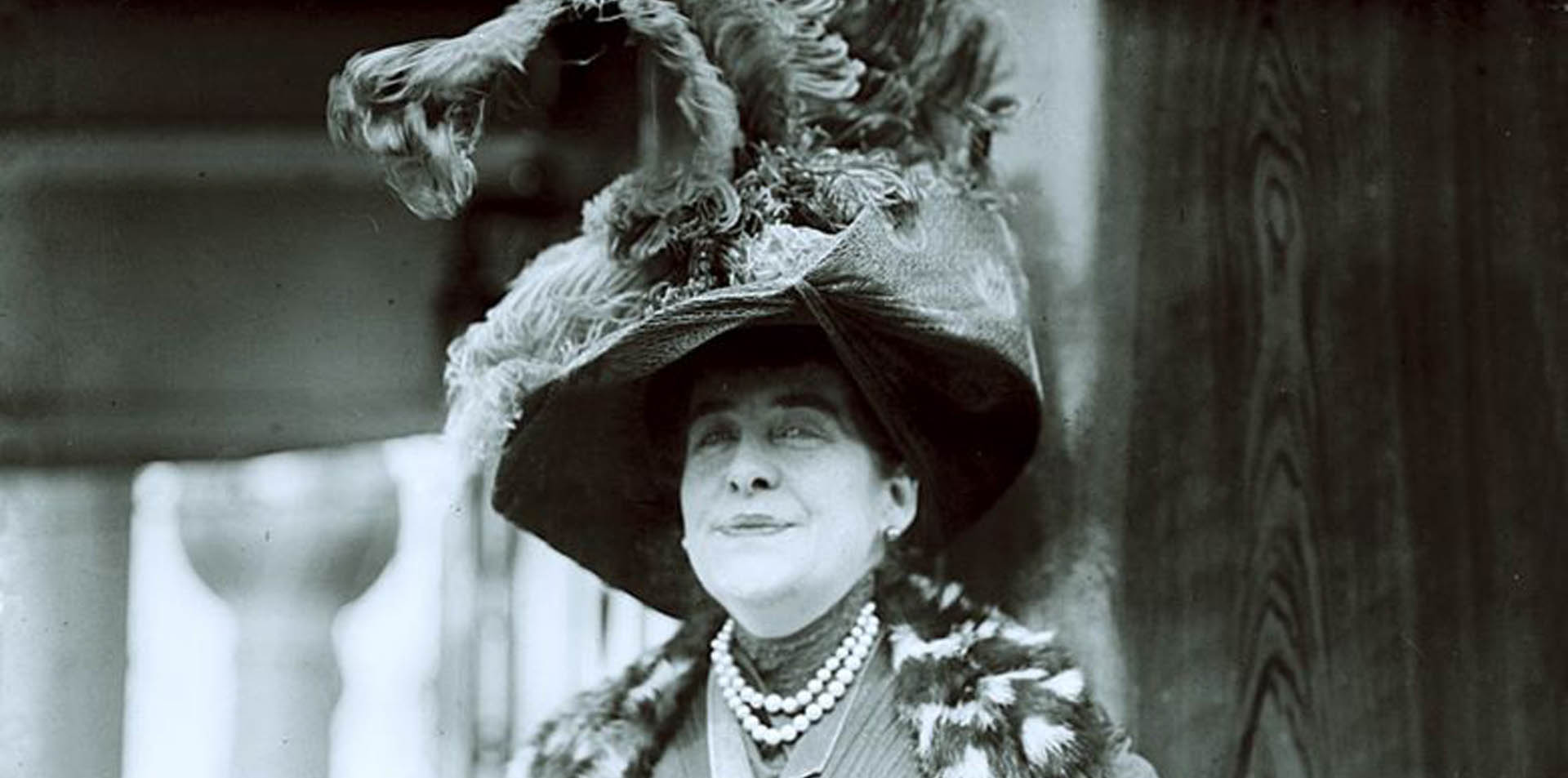
Times Literary Supplement: Proper Bohemian
Libby Purves on the exhausting and exhilarating tale of a ‘wealthy heiress with proto-PC views’
LIBBY PURVES
We don’t get proper bohemians these days. There aren’t enough shockable bourgeois to épater; loucheness is positively applauded. When Aimée Crocker took up with a feudal Chinese warlord or a “Wild Man Of Borneo” in the 1890s, it shocked everyone but her. When, back in New York, she invited the cream of society to a dinner and appeared, heavily decolletée and wrapped in a 60 lb boa constrictor whose muscular form she found erotic, there were faints and shrieking. Newspapers, she complained, “made the story into an orgy based on some vague idea of snake-worship, that was really impossible and very unkind”. These days it would be organized by party-planners, and picture rights sold to Hello! Eheu fugaces.
This wealthy San Francisco heiress was born in 1864, and from early childhood was drawn to the East. She demanded a “Chinese bed” at ten, and ended her life surrounded by Buddhas, pearls, snakes and random mystical convictions. In 1936, she wrote this memoir, with its defiant title.
She’s no stylist, but she has a certain forthright energy and arrogance: reading her chronicle of ripping yarns is like being repeatedly offered strong cocktails by someone determined you shan’t go home. And she has mixed them herself. Dull history relates that her first elopement ended with the husband – Porter Ashe, from a prominent San Francisco family – having a fling with Lillie Langtry; losing a lot of Aimée’s money; kidnapping their daughter Gladys and – shockingly – getting custody. The court cases were front-page news for weeks, but Aimée skips over them in favour of a dramatic description of a train crash on their honeymoon.
The book, she says, is “not to be mistaken for an apology. Not at all”, and she repeatedly pours scorn on “Mrs Grundys” who would like one. Life was to be seized, and so were men; we encounter here the Spaniard in a jewelled sombrero – “brutal, conceited, haughty, passionate, direct, childish and completely irresponsible” – who was her first crush, and a bewildering sequence of Hawaiian, Japanese, Malaysian, Chinese and Indian beaux. The only man who disappoints her is a handsome Englishman called Huntingdon Meer: “why are British persons of a certain class always so embarrassed and pink?” She flirts with him, despite her current husband’s objections, treating him as an “overgrown very eager page”. Yet when she falls for Baron Takamini, a “perfect specimen” though small, the Englishman gets upset. “I do not believe there is a woman alive or ever has been who can stand whimpering on the part of a full-grown man”, she writes . The Japanese romance ends badly anyway; her Baron falls for a prim Wisconsin girl, Miss Darnley, who turns him down and provokes ritual suicide. Endearingly, Aimée is less upset by that than by Miss Darnley’s description of his approach as “an insult to American girlhood and a white woman . . . the dirty swine”.
Our heroine deplores such racist nonsense. She has, after all, chartered a schooner and hung out for months in Hawaii with King Kalakaua, learning the hula-hula, dressing local and deciding that sex is natural and fine. The local missionaries call her “carnal and filthy” and a bad example, to which she snaps, “Well, if by refusing to snub and patronize the natives we did them harm, I wonder how these good commercial men of God will answer one day for the land they took away from the Kanakas?”
A wealthy hedonist with proto-PC views is exhilarating company, though I have no idea how much she embroiders. She falls for a “repulsively ugly” hypnotist in Honolulu, dumps him after an incident at a leper colony, and reports not un-gleefully that two years later he put himself into a “hystero-cataleptic” trance, was presumed dead and was autopsied while still alive. But by this point she’s only just getting going: off to Japan and Hong Kong (where she finds the British Raj absurd), and to China, where she ransoms a girl from a cathouse and becomes the prisoner of a warlord, who makes her watch an execution by a thousand cuts and informs her, “I am the master of all that is beautiful in this house. I may keep those things, give them away or break them if it pleases me”. Naturally she escapes by night after her dressing gown gets impaled by an assassin’s knife, has a naked orgasmic experience when an old man plays a stringed instrument – “rhythm after rhythm consumed me and lighted fires of passion and madness” – and comes round in the Ladies’ Dressing Room of an expat club – “with an Irish attendant holding smelling salts under my nose”.
In Borneo she is seized in a canoe by a beautiful prince with “fires burning within him”, escapes angry tribesmen and (this I do believe) gets hurried off by the British Resident for stirring up the natives. It makes you sympathize with those weary colonial governors in Somerset Maugham novels. India brought more beautiful men and mystical experiences. Back in Europe, the First World War causes trouble when she cannot send for her money; the only adventure that really shocks her is having to travel home steerage like an “immigrant-woman” – “the newspapers would have ruined me”, she says without a trace of irony. When a man on the ship embraces her, she fears he’ll feel her hidden ropes of pearls. But she bribes her way into an officer’s cabin with an IOU. Always comes up smiling, our Aimée.
And always on the side of tolerance. Early in her social career she organized a drinking game with Oscar Wilde in San Francisco (he won). “I am aware of the gigantic structure of naughtiness which the world has hung around the neck of his memory”, she writes in 1936, but she defends him as “charming”, if rather prone to dominating the conversation. Takes one to know one. I was so exhausted by the end that I collapsed into the new Joanna Trollope, reflecting that what we women consider an adventure these days is pretty damn tame.



